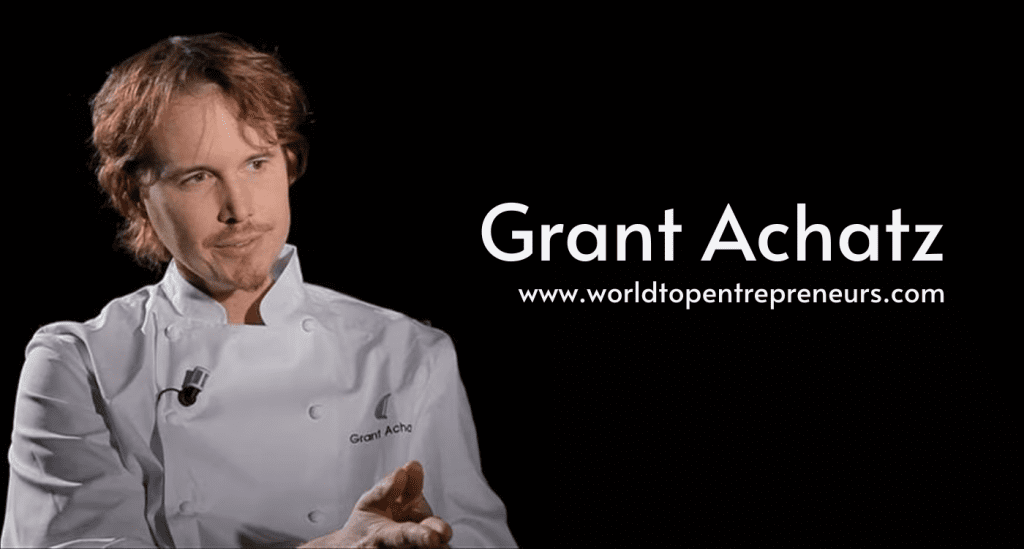In the bustling world of fast-casual dining, where trends come and go with alarming speed, one name stands out as a beacon of innovation and perseverance: Steve Ells. As the founder of Chipotle Mexican Grill, Ells has revolutionized the way we think about fast food, transforming a simple burrito chain into a global phenomenon. His journey from a small Denver restaurant to an international brand is a compelling story of vision, risk-taking, and an unwavering commitment to quality.
The Humble Beginnings
Steve Ells’ story begins not in the glitzy corridors of corporate America, but in a modest kitchen with a dream. Born on September 12, 1965, in Birmingham, Alabama, Ells grew up in a family that was deeply rooted in the food industry. His father, a successful restaurateur, and his mother, a talented chef, provided Ells with an early exposure to the culinary world. This familial backdrop would play a crucial role in shaping his future.
After high school, Ells pursued a degree in Art History at the University of Colorado Boulder. His academic focus may seem unconventional for a future restaurateur, but it was this eclectic blend of interests that would later influence his unique approach to business and design. Upon graduating, Ells took a more conventional path and enrolled in culinary school at the Culinary Institute of America in Greystone, California. This formal training honed his skills and prepared him for the entrepreneurial challenges that lay ahead.
The Birth of Chipotle
In 1993, Steve Ells took a bold step that would change the trajectory of his life and the restaurant industry. With a modest $85,000 loan from his father, he opened the first Chipotle Mexican Grill in a small, unassuming location in Denver, Colorado. His vision was clear: to offer high-quality, made-to-order Mexican food in a fast-casual setting. At the time, the fast-food landscape was dominated by the likes of McDonald’s and Taco Bell, which focused on speed and low cost rather than quality and flavor.
Ells’ concept was simple yet revolutionary. He aimed to create a restaurant that combined the speed of fast food with the quality of gourmet dining. His commitment to using fresh, high-quality ingredients and preparing each dish to order set Chipotle apart from its competitors. The restaurant’s menu was straightforward: burritos, tacos, and salads, all customizable with a variety of fresh ingredients. This simplicity allowed Chipotle to focus on quality and consistency, which quickly became its hallmark.
Early Challenges and Breakthroughs
The early days of Chipotle were far from smooth sailing. The initial location, though promising, faced significant challenges. Ells struggled with the logistics of running a restaurant and ensuring that every aspect of the operation met his high standards. There were financial hurdles, staffing issues, and the constant pressure of competing against established fast-food giants. Despite these challenges, Ells’ dedication to his vision remained unwavering.
One of the pivotal moments in Chipotle’s history came in 1995, when Ells made a strategic decision to invite McDonald’s as an investor. This move was driven by a need for capital to fuel expansion and enhance operational efficiencies. McDonald’s saw potential in Ells’ concept and decided to invest, providing not only financial support but also valuable operational expertise. This partnership was instrumental in scaling Chipotle from a single store to a growing chain of restaurants.
The Rise of Chipotle
The late 1990s and early 2000s were a period of rapid expansion for Chipotle. With McDonald’s backing, Ells was able to open new locations and refine the company’s operations. The brand’s commitment to using sustainably sourced ingredients, including hormone-free meat and organic produce, resonated with a growing segment of health-conscious consumers. Chipotle’s emphasis on ethical sourcing and environmental responsibility further differentiated it from traditional fast-food chains.
Chipotle’s growth was not without its hurdles. The company faced significant challenges in maintaining quality and consistency across its expanding network of restaurants. Food safety issues, supply chain complexities, and the pressures of rapid expansion tested Ells and his team. However, each challenge was met with a proactive approach and a commitment to continuous improvement. The company implemented rigorous food safety protocols and invested in supply chain management to ensure that its high standards were upheld.
A Philosophy of Responsibility
Steve Ells’ vision for Chipotle went beyond just serving delicious food. He was driven by a philosophy of responsibility—toward the environment, the community, and the people who worked for him. This commitment to ethical practices was a core part of Chipotle’s identity.
Sustainability and Environmental Responsibility: Chipotle’s dedication to sustainability is evident in its sourcing practices. The company has long been a proponent of using locally sourced, sustainably farmed ingredients. Ells and his team have worked tirelessly to reduce the company’s environmental footprint, from minimizing waste to using energy-efficient equipment. Chipotle was one of the first major restaurant chains to commit to using only naturally raised, hormone-free meat, which reflects Ells’ commitment to ethical and sustainable food production.
Community Engagement: Community involvement has been a cornerstone of Chipotle’s operations. The company regularly engages in charitable activities and supports local communities through various initiatives. Whether it’s through food donations or partnerships with local organizations, Chipotle has consistently demonstrated a commitment to making a positive impact beyond its restaurant walls.
Employee Welfare: Ells has always placed a high value on the well-being of his employees. Chipotle is known for offering competitive wages, benefits, and opportunities for advancement. The company’s success is deeply intertwined with the dedication and hard work of its employees, and Ells has made it a priority to ensure that they are well-supported and valued.
Navigating Crisis and Reinventing the Brand
Despite its success, Chipotle has faced significant challenges, particularly concerning food safety. In 2015 and 2016, the company was hit by a series of foodborne illness outbreaks that affected several locations. These incidents had a profound impact on the company’s reputation and financial performance. The outbreaks led to widespread criticism, declining sales, and a loss of consumer trust.
Steve Ells took immediate action to address the crisis. The company implemented a comprehensive food safety overhaul, including enhanced employee training, stricter food handling procedures, and a revamp of its supply chain. Ells publicly apologized for the incidents and committed to regaining consumer trust through transparency and rigorous standards. The road to recovery was challenging, but Ells’ leadership and the company’s commitment to addressing the issues head-on played a crucial role in rebuilding the brand.
In response to the crisis, Chipotle also began to focus on innovation and reinvention. The company introduced new menu items, revamped its marketing strategy, and expanded its digital ordering capabilities. These efforts were aimed at revitalizing the brand and meeting the evolving preferences of consumers. The introduction of new menu items, such as the “Chipotle Lifestyle Bowls” and expanded vegetarian options, demonstrated the company’s adaptability and commitment to staying relevant in a competitive market.
The Legacy of Steve Ells
Steve Ells stepped down as CEO of Chipotle in 2017, but his legacy continues to shape the company and the fast-casual dining industry as a whole. His vision of combining high-quality food with a fast-casual dining experience has set a new standard for the industry. Chipotle’s success has inspired a wave of new restaurant concepts that prioritize quality, sustainability, and transparency.
Ells’ impact extends beyond Chipotle. His entrepreneurial spirit and commitment to innovation have made him a respected figure in the business world. He has been recognized with numerous awards and honors, including being named one of the “100 Most Creative People in Business” by Fast Company and receiving the “Entrepreneur of the Year” award from Ernst & Young.
Even after stepping down from his role as CEO, Ells remains involved in the restaurant industry and continues to support various philanthropic endeavors. His influence is evident in the way Chipotle operates and in the broader industry trends that prioritize sustainability, quality, and ethical practices.
Conclusion
Steve Ells’ journey from a single restaurant in Denver to the global success of Chipotle Mexican Grill is a testament to his vision, resilience, and dedication. His commitment to high-quality food, ethical practices, and community involvement has not only shaped the trajectory of Chipotle but also left a lasting impact on the fast-casual dining industry. Ells’ story is one of innovation, perseverance, and a relentless pursuit of excellence, and his legacy will undoubtedly continue to influence the world of food and business for years to come.





















